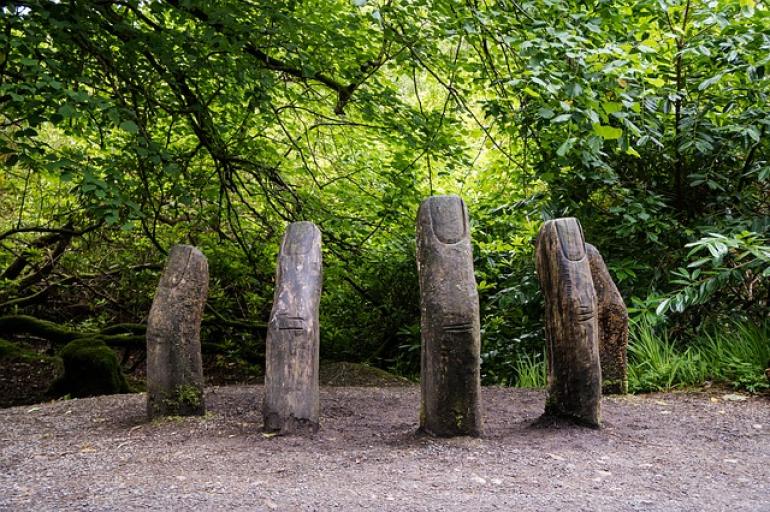
On 8th and 9th September 2017, Senigallia's seminar on intercultural education will tackle sustainability. With presentations and workshops, teachers and educators will explore the Agenda 2030 for sustainable development
The 11th edition of the Seminar on Intercultural Education organised by CVM is titled ”Sustainability and Human Development. New curriculum for the global citizen of the 21st century" and moves from the UN 2030 Sustainable development agenda, the UNESCO pedagogical guide on "Global citizenship education", and on the document "Skills for a culture of democracy" by Council of Europe.
The Seminar, organised within the Global Schools project, will take place in Senigallia on 8-9 September 2017 where internationally renowned experts will discuss about ethics and sustainability policy, as well as of the prospects for an “integral ecology” that requires a critical mind starting from the school benches. The Direction General for Education of Portugal will present the country's Global Citizenship Education (GCE) policy, which is at the forefront in education in Europe. Participating teachers can choose among eighteen workshops, where the Agenda 2030 will be translated into interactive didactic activities to be replicated in the classrooms. The aim is to encourage students to learn the life skills that are indispensable to handle issues, situations and questions posed by the challenges of the III Millennium.
The aim that each teacher should pursue is to "go beyond" the present, and provide students with the tools they need to imagine a future based on a new citizenship, based on an advanced social contract.
It is necessary to review the mental paradigms with which we approach disciplinary knowledge to foster a new culture of relationships, marked by the values of co-responsibility, interdependence, decentralisation, critical thinking, creativity and the capacity to scale up.
Building the competences of a cosmopolitan citizen should be the new mission of the school and affect the teacher's ethics as indicated in the UNESCO's pedagogical guide .
PROGRAMME
Friday 8 September
8:30
Registration of participants
9:00
Greetings by the authorities
9:30
Can there be an ethical development?
Roberto Mancini – University of Macerata and Mendrisio (Switzerland)
10:10
Integral ecology: Is change possible?
Enrico Giovannini - University of Rome "Tor Vergata" - spokesperson ASviS
10.45 | Break
11:00
Is there a policy of sustainability?
Massimo Scalia – University of Sapienza of Rome UNESCO Scientific Committee
11:45
Presentation of Portugal's GCE policy
Maria José Neves – Direction General for Education – Portuguese Ministry of Education
12:15
Global Schools: Experiences and follow ups. A collective reflection at the end of the Global Schools project
Francesca Vanoni – Global Scools Project manager – Autonomous Province of Trento
12.40 | Debate
A FTERNOON
15:00
PARALLEL SESSION: FOCUS GROUP SCHOLARS
Guidelines for the establishment of a Research Commission tasked with the design of curriculum, and educational materials (toolkits, essays, lessons units, etc.) which can be used by teachers to form new generations of world citizenship
15.00 – 18.00
PARALLEL WORKSHOPS
For Primary Schools and Kindergartens
Let’s not eat the planet!
Paola Gobbi (Institute Rita Levi Montalcini of Chiaravalle)
Dialogues for a human growth. How to devise them at school
Alessandra Albini and Micaela Filippini (Istituto Comprensivo of Manerbio)
For Primary and middle schools
Feeding the Mind: from yourself to Gaia
Denis Francesconi (CCI)
Taking part is what counts: the relation between human beings and nature
Fabrizio Leone (CVM)
Free water for all
Amedeo Angelozzi (CVM)
For Secondary Schools
Migrations and Right to the Future. Educational Paths to Global Citizenship
Sara Bin (Fondazione Fontana)
For any grades
The pedagogical approach of service learning. Experiences and good practice at school
Manuela Scandurra (EIS Higher Education School, LUMSA University)
Educating to biodiversity
Rita de Stefano (Institute of Pangea)
Sustainability and relational dynamics at School
Davide Boniforti (Methods)
EVENING EVENT ON SUSTAINABILITY
Saturday 9 September
9:00
History teaching: Sustainable episodes and not
Antonio Brusa – INSMLI
9:45
Energy consumption from the past to the future
Paolo Malanima – University of Catanzaro
10:30 Break
10:45
Round Table – Case study: Italy
Sustainability: climate and not only
Desirè Quagliarotti – Institute for Studies on Mediterranean Societies (ISSM)
Is Italy a Sustainable Country?
Gabriella Corona – National Research Center (CNR)
12:15
Debate
AFTERNOON
14:30 – 17.00
PARALLEL WORKSHOPS
For any grades
The task of theatre is to entertain people
Mario Fracassi (Florian Metateatro, Pescara)
How to Communicate and tackle Climate Change
Paulo Lima Vicar (Association Viracao & Jangada)
For primary and secondary schools
From wealth to happiness: measuring well-being in class
Denis Francesconi (CCI)
Think together to sustainability. Philosophy for children and values education
Cristina Rossi (Teacher at Scool Don Lorenzo Milani, Romano Lombardia)
For secondary schools
Future and sustainability: the role of women
Catia Brunelli (CVM)
Collapse. How societies choose to die or live, from ‘Padania’ to the New World
Marco Cecalupo (Historia ludens, teacher at Leonardo da Vinci, Reggio Emilia)
Sin cafè no hay mañana, when a coffee is transformed into development, education, and health
Massimo Mogiatti (Cooperative Shadhilly)
Economic interests and safety issues: the Vajont case
Enrico Bacchetti (Novecento.org and National Institute "Ferruccio Parri")
New teaching methods and sustainability: historytelling, smart maps, playful teaching, workshops
Giuseppe Losapio (Istoria Ludens, Teacher at school "Aldo Moro", Trani)
